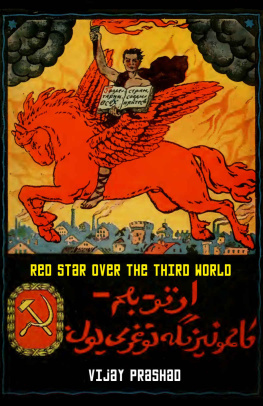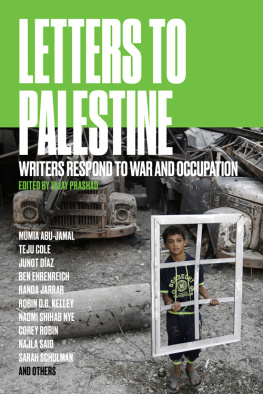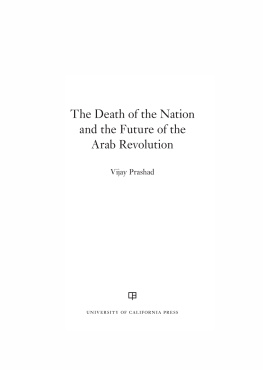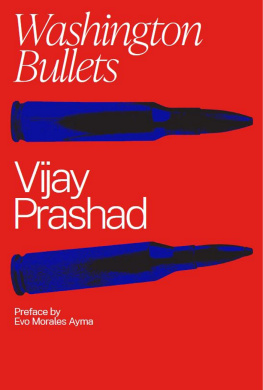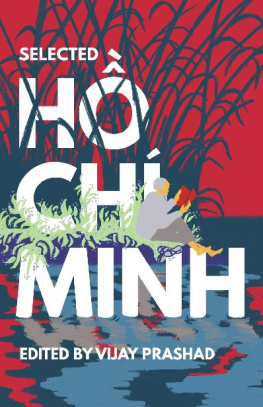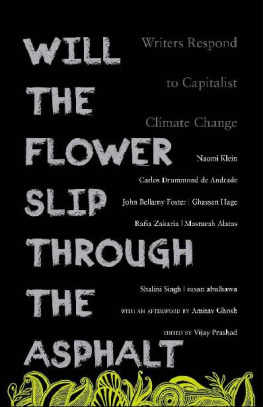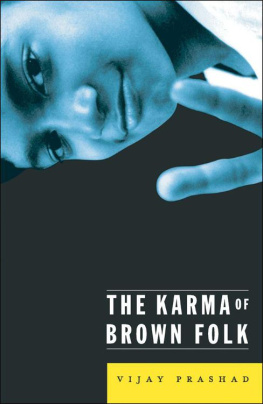Vijay Prashad - Red Star Over the Third World
Here you can read online Vijay Prashad - Red Star Over the Third World full text of the book (entire story) in english for free. Download pdf and epub, get meaning, cover and reviews about this ebook. year: 2018, publisher: LeftWord Books, genre: Politics. Description of the work, (preface) as well as reviews are available. Best literature library LitArk.com created for fans of good reading and offers a wide selection of genres:
Romance novel
Science fiction
Adventure
Detective
Science
History
Home and family
Prose
Art
Politics
Computer
Non-fiction
Religion
Business
Children
Humor
Choose a favorite category and find really read worthwhile books. Enjoy immersion in the world of imagination, feel the emotions of the characters or learn something new for yourself, make an fascinating discovery.
- Book:Red Star Over the Third World
- Author:
- Publisher:LeftWord Books
- Genre:
- Year:2018
- Rating:4 / 5
- Favourites:Add to favourites
- Your mark:
- 80
- 1
- 2
- 3
- 4
- 5
Red Star Over the Third World: summary, description and annotation
We offer to read an annotation, description, summary or preface (depends on what the author of the book "Red Star Over the Third World" wrote himself). If you haven't found the necessary information about the book — write in the comments, we will try to find it.
Red Star Over the Third World — read online for free the complete book (whole text) full work
Below is the text of the book, divided by pages. System saving the place of the last page read, allows you to conveniently read the book "Red Star Over the Third World" online for free, without having to search again every time where you left off. Put a bookmark, and you can go to the page where you finished reading at any time.
Font size:
Interval:
Bookmark:
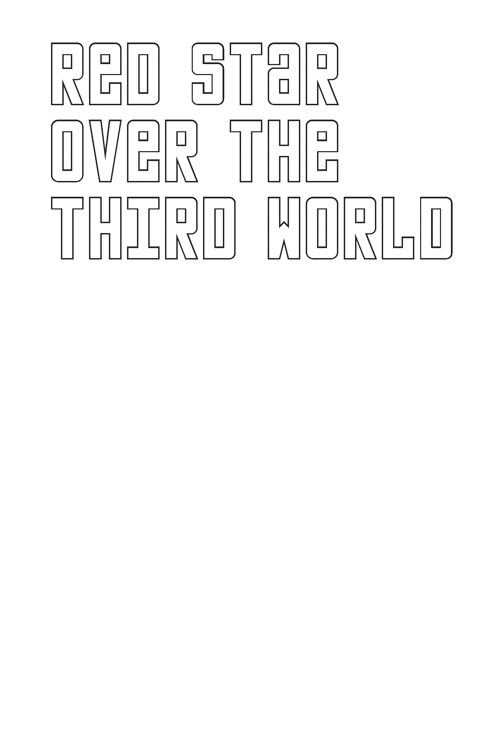
ALSO BY VIJAY PRASHAD FROM LEFTWORD BOOKS
No Free Left: The Futures of Indian Communism 2015
The Poorer Nations: A Possible History of the Global South. 2013
Arab Spring, Libyan Winter. 2012
The Darker Nations: A Biography of the Short-Lived Third World. 2009
Namaste Sharon: Hindutva and Sharonism Under US Hegemony. 2003
War Against the Planet: The Fifth Afghan War, Imperialism and Other Assorted Fundamentalisms. 2002
Enron Blowout: Corporate Capitalism and Theft of the Global Commons, co-authored with Prabir Purkayastha. 2002
Dispatches from the Arab Spring: Understanding the New Middle East, co-edited with Paul Amar. 2013
Dispatches from Pakistan, co-edited with Madiha R. Tahir and Qalandar Bux Memon. 2012
Dispatches from Latin America: Experiments Against Neoliberalism, co-edited with Teo Balv. 2006
OTHER TITLES BY VIJAY PRASHAD
Uncle Swami: South Asians in America Today. 2012
Keeping Up with the Dow Joneses: Stocks, Jails, Welfare. 2003
The American Scheme: Three Essays. 2002
Everybody Was Kung Fu Fighting: Afro-Asian Connections and the Myth of Cultural Purity. 2002
Fat Cats and Running Dogs: The Enron Stage of Capitalism. 2002
The Karma of Brown Folk. 2000
Untouchable Freedom: A Social History of a Dalit Community. 1999

First published in November 2017
E-book published in December 2017
LeftWord Books
2254/2A Shadi Khampur
New Ranjit Nagar
New Delhi 110008
INDIA
LeftWord Books is the publishing division of
Naya Rasta Publishers Pvt. Ltd.
leftword.com
Vijay Prashad, 2017
Front cover: Bolshevik Poster in Russian and Arabic Characters for the Peoples of the East: Proletarians of All Countries, Unite!, reproduced from Albert Rhys Williams,
Through the Russian Revolution,
New York: Boni and Liveright Publishers, 1921
Sources for images, as well as references for any part of this book are available upon request. All efforts have been made to ensure that the images used are either out of copyright, or the requisite permissions obtained. Any lapse, if brought to the notice of the Publisher, will be rectified.
This book is for
BRINDA KARAT
who has guided me
since forever
and continues to
guide me yet.
Contents
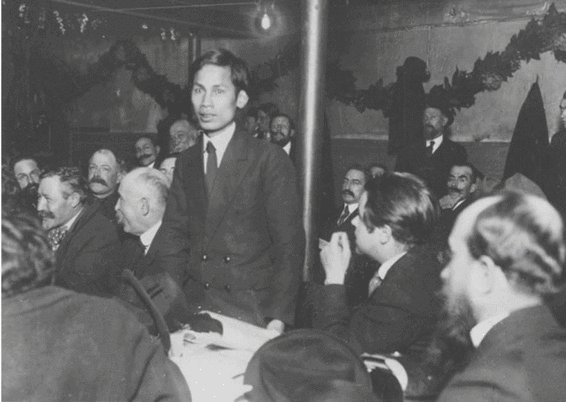
Nguyn i Quc, later H Ch Minh, at the founding conference of the Communist Party of France in Tours (December 1920).
Tensions ran from one end of the Tsarist Empire to another at the start of 1917. Soldiers at the front, fighting a war that seemed to go nowhere, were in the mood to turn their guns against their rulers. Workers and peasants, struggling to make ends meet, had their hammers and sickles ready to crash down on the heads of their bosses and landlords. The various socialist groups and their clandestine organizations struggled to build momentum amongst the people against an increasingly disoriented and brutal Tsarist regime.
On March 8, 1917, Petrograd faced a shortage of fuel. Bakeries could not run. Working women, in the queues for bread, had to go to their homes and factories empty-handed. The textile women angered by the conditions went on strike. It was International Working Womens Day. Bread for our children was one chant. Another was The return of our husbands from the trenches. Men and women from the factories joined them. They flooded Petrograds streets. The Tsarist state was paralyzed by their anger. These working women began the February Revolution of 1917, which culminated in the October Revolution of 1917 and with the formation of the Union of Soviet Socialist Republics (USSR).
A hundred years have passed since the October Revolution. The USSR, which it inaugurated, only lasted for little more than seventy years. It has been a quarter-century since the demise of the USSR. And yet, the marks of the October Revolution remain not just in territories of the USSR but more so in what used to be known as the Third World. From Cuba to Vietnam, from China to South Africa, the October Revolution remains as an inspiration. After all, that Revolution proved that the working class and the peasantry could not only overthrow an autocratic government but that it could form its own government, in its image. It proved decisively that the working class and the peasantry could be allied. It proved as well the necessity of a vanguard party that was open to spontaneous currents of unrest, but which could in its own way guide a revolution to completion. These lessons reverberated through Mongolia and into China, from Cuba to Vietnam.
When he was a young migr in Paris, H Ch Minh, then Nguyn i Quc, read the Communist Internationals thesis on national and colonial issues and wept. It was a miraculous guide for the struggle of the people of Indo-China, he felt. From the experience of the Russian Revolution, H Ch Minh wrote, we should have people both the working class and the peasants at the root of our struggle. We need a strong party, a strong will, with sacrifice and unanimity at our centre. Like the brilliant sun, H Ch Minh wrote, the October Revolution shone over all five continents, awakening millions of oppressed and exploited people around the world. There has never existed such a revolution of such significance and scale in the history of humanity. This is a common attitude in the Third World sincere emotions that reveal how important this revolution was to the anti-colonial and anti-fascist struggles that broke out in the aftermath of 1917.
In September 1945, when H Ch Minh took the podium to declare freedom for Vietnam, he said simply We are free. And then, as if an afterthought, We will never again be humiliated. Never! This was the sound of the confidence of ordinary people who make extraordinary history. They refuse to be humiliated. They want their dignity intact. This was the lesson of October.
This is a little book to explain the power of the October Revolution for the Third World. It is not a comprehensive study, but a small book with a large hope that a new generation will come to see the importance of this revolution for the working class and peasantry in that part of the world that suffered under the heel of colonial domination. There are many stories that are not here and many that are not fully developed. That is to be expected in a book such as this. But these are stories of feeling, mirrors of aspirations. Please read them gently.
The LeftWord Communist History group (Lisa Armstrong, Suchetana Chattopadhyay, Archana Prasad, Sudhanva Deshpande) put this book in gear. Our first volume included essays from the core members as well as from Fredrik Petersson, Margaret Stevens and Lin Chun all key scholars of the legacy of the October Revolution. Grateful for the guidance and friendship of Aijaz Ahmad, Andrew Hsiao, Brinda Karat, Cosmas Musumali, Githa Hariharan, Irvin Jim, Jodie Evans, Marco Fernandes, Naeem Mohaiemen, P. Sainath, Pilar Troya, Prabir Purkayastha, Prakash Karat, Qalandar Memon, Robin D.G. Kelley, Roy Singham, Sara Greavu, Subhashini Ali, Vashna Jaganath and Zayde Antrim. This book would not have been possible without the theoretical and practical work of my comrades in the Communist Party of India (Marxist). And grateful to Zalia Maya, Rosa Maya, Soni Prashad and Rosy Samuel who made writing most of this book in Kolkata a treat.
Next pageFont size:
Interval:
Bookmark:
Similar books «Red Star Over the Third World»
Look at similar books to Red Star Over the Third World. We have selected literature similar in name and meaning in the hope of providing readers with more options to find new, interesting, not yet read works.
Discussion, reviews of the book Red Star Over the Third World and just readers' own opinions. Leave your comments, write what you think about the work, its meaning or the main characters. Specify what exactly you liked and what you didn't like, and why you think so.

